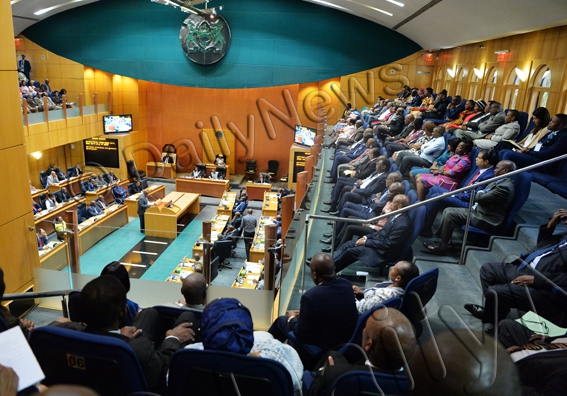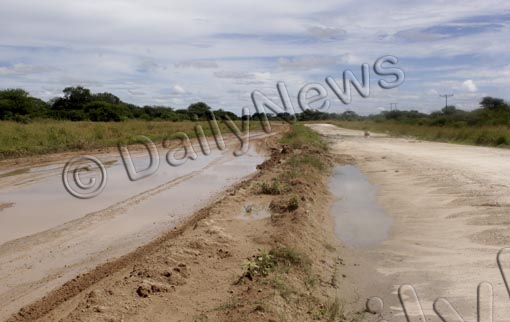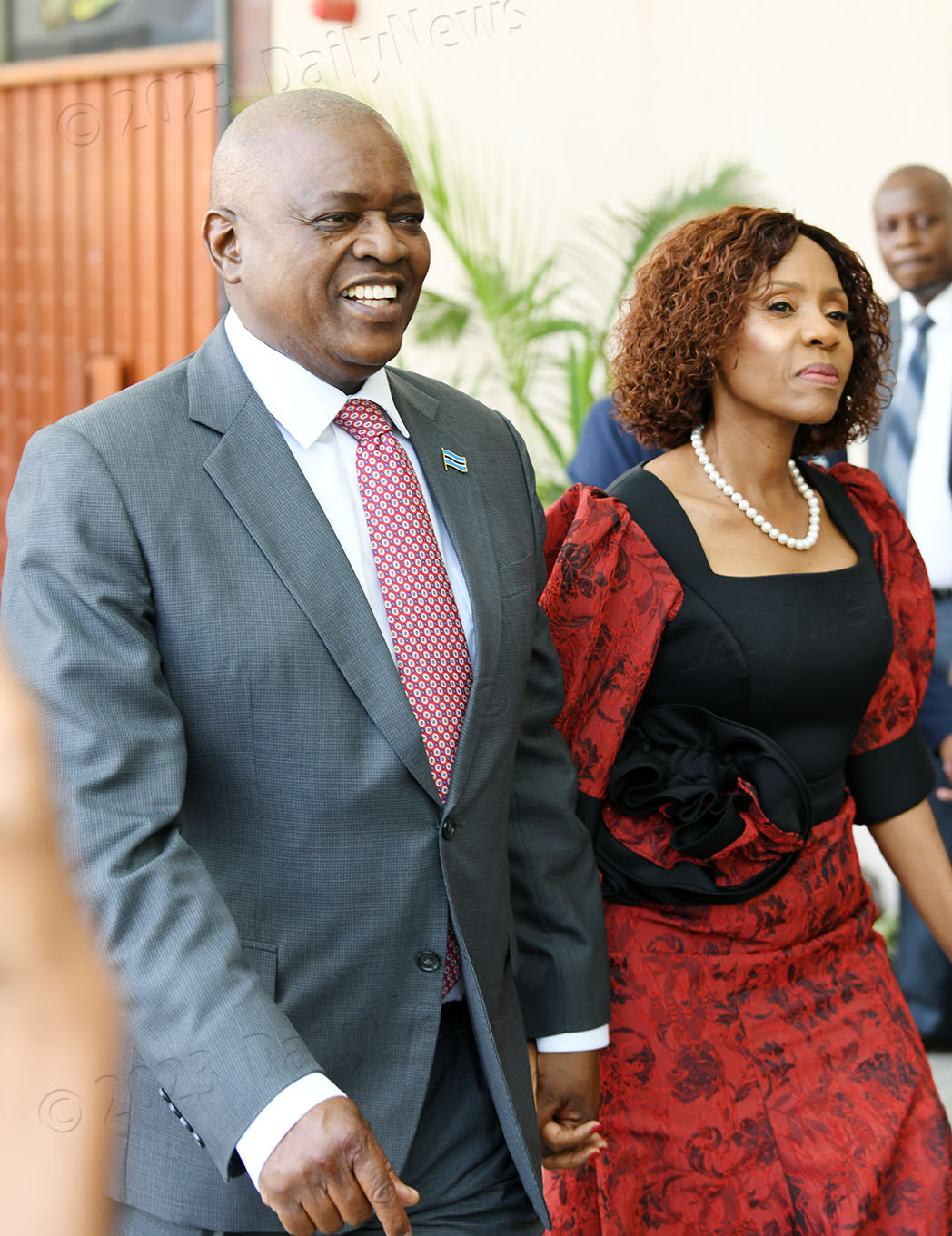Mineral revenue remains highest contributor
04 Feb 2019
A total expenditure and net lending for the 2019/2020 financial year is estimated at P67.54 billion, resulting in a budget deficit of P7.34 billion.
Delivering the 2019/2020 budget speech in Parliament on February 4, Minister of Finance and Economic Development, Mr Kenneth Matambo said the total revenue and grants were estimated at P60.2 billion, adding that mineral revenue remained the highest contributor at P21.09 billion or 35.62 per cent of the total revenue and grants, while customs and excise revenue was estimated at P14.02 billion.
The non-mineral income tax, he said, was estimated at P11.55 billion, while Value Added Tax was expected at P9.12 billion.
“However, there are downside risks to these revenue estimates, arising mainly from the continued high volatility of the mineral and customs and excise revenues,” he said.
He said total revenues and grants for the 2017/2018 financial year were at P56.41 billion, while a total expenditure and net lending amounted to P58.39 billion, resulting in the overall deficit of P1.98 billion, or -1.1 per cent of GDP.
This negative budget outturn, Mr Matambo said, was due to lower tax collections during the year, adding that ‘efforts will therefore be intensified to ensure efficiency in the collection of tax revenues by Botswana Unified Revenue Service through continuous review of tax laws and leveraging on the use of Information and Communications Technology to enhance compliance’.
Compared to the original budget of P3.59 billion, the minister said the revised budget forecast for 2018/2019 was a deficit of P6.96 billion, or -3.5 per cent of GDP.
Therefore, due to forecast under performance of the mineral and non-mineral income tax revenue items, he said total revenue and grants had been revised downwards by 12.6 per cent to P58.23 billion.
Further, in light of the decision by Debswana to commence implementation of Cut 9 project at Jwaneng and Cut 3 project at Orapa during the 2019/2020 financial year, financed through forfeited dividends, he said mineral revenue had also been revised downwards by 17.5 per cent.
“The non-mineral income tax, on the other hand, will under perform by 33.3 per cent against the original budget of P13.36 billion, reflecting lower collections by the revenue authority,” the minister added.
Further, due to continued under performance of the development budget, he said a total expenditure and net lending for 2018/2019 also showed a decrease of P2.68 billion performance from the original budget of P67.87 billion to P65.19 billion.
To reflect implementation capacity of both the public and private sectors to execute projects, the minister said development budget for 2018/2019 was revised from the original figure of P19.31 billion to P16.62 billion.
On other issues, Minister Matambo said government had taken a decision to set up a Project Management Office, during the 2019/2020 financial year, to ensure effective implementation of projects.
Mr Matambo said lack of implementation or slow implementation within both government and private sector was worrisome.
To address this, he said in the coming financial year, emphasis would be put on effective and efficient implementation of government programmes ‘by ensuring adequate planning for such programmes, including timely acquisition of land, and all other activities that are necessary to prepare for actual implementation’.
Additionally, the Finance and Economic Development minister said government would also be rolling out implementation of the National Monitoring and Evaluation System that was approved last year to ensure that resources were used to deliver on their intended outputs and outcomes.
He emphasised that 2019/2020 budget proposals were informed by the need to consolidate the country’s gains in various areas of development and address challenges to achieve sustained economic growth to support employment creation and poverty alleviation.
Therefore, he said, focus would be placed on high impact infrastructure development; human capital development, especially technical and vocational education; and national Information and Communications Technology backbone.
Additionally, as part of its efforts to address poverty among the most vulnerable groups of the society, he said government would continue to implement social welfare programmes. Ends
Source : BOPA
Author : BOPA
Location : GABORONE
Event : Parliament
Date : 04 Feb 2019








